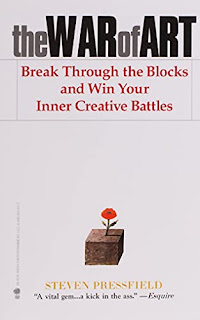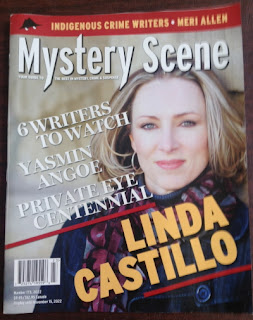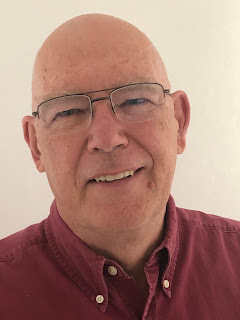This week, I was reminded of two things about myself that also seem relevant to the characters in my historical thriller. First, I don't like change.This morning, I was into my office on campus and learned that one of our long-time staff members is leaving to accept a position in an administrative office on campus. Although I''m happy for her, I'm distressed knowing how much we all rely on her. Aside from that, I'll miss her warmth and laughter. Don't get me wrong, the other staff are terrific -- but she has been there so long that she is our bedrock.
I should clarify when I say that I don't like change, I have no problem at all when something that is bad gets better. But with the world and daily life so uncertain, change in areas that offer stability and comfort are depressing and disconcerting.
The other thing I remembered last weekend when I attended a literary awards event at the public library and watched a really impressive high school ensemble and their director perform -- already knew, but was reminded -- is that I value precision. I'm not sure that's the exact word (i.e., quality) that I'm trying to describe. But it's my delight in Cam Anthony's performance in the finale of The Voice, when he turned on a dime on the platform surrounded by finger-snapping dancers. Or that flawless scat he did a couple of weeks earlier.
https://www.youtube.com/watch?v=1jQ3QKwFEeA
It's my favorite part of the movie Taps when the cadets in the hallway do their present arms for their cadet leader. Or the soldiers marching in the rites for Queen Elizabeth. I mention the military because I was in the Army and had no ability to march. Nada. None at all. So, I admire the precision rituals. (Fortunately, I was a food inspector).
I admire the precision of those who can do something flawlessly and make it look easy. And that brings me to my character. The protagonist and his antagonist. My protagonist, the sleeping car porter, prides himself on how he does each of his tasks. He has memorized the detailed Pullman manual -- from greeting passengers to mixing drinks to shining shoes. He wants to be a lawyer, and he is working as a porter to earn money for law school. But he takes pride in doing what he must do well. He is the type of man who approaches whatever he does as an exercise in precision -- logical, orderly, well thought-out.
On the other hand, his antagonist -- the "villain" -- prides himself on his charm. He is "the gentle gentleman from Georgia" to quote a song of the era. He has inherited his grandfather's plantation and aspires to be as dashing as he was. He is a businessman but careless -- and that is one of the reasons he is deep in debt.
What has occurred to me is that I should go deeper with their contrasting characteristics. There are situations in which being precise serves my protagonist well, but at moments when he must innovate and react quickly to a situation, his opponent may have the advantage. After giving this some thought, I'm looking at how they may differ (or be the same) in other ways.
I'll let you know how that goes. Happy Friday!



















